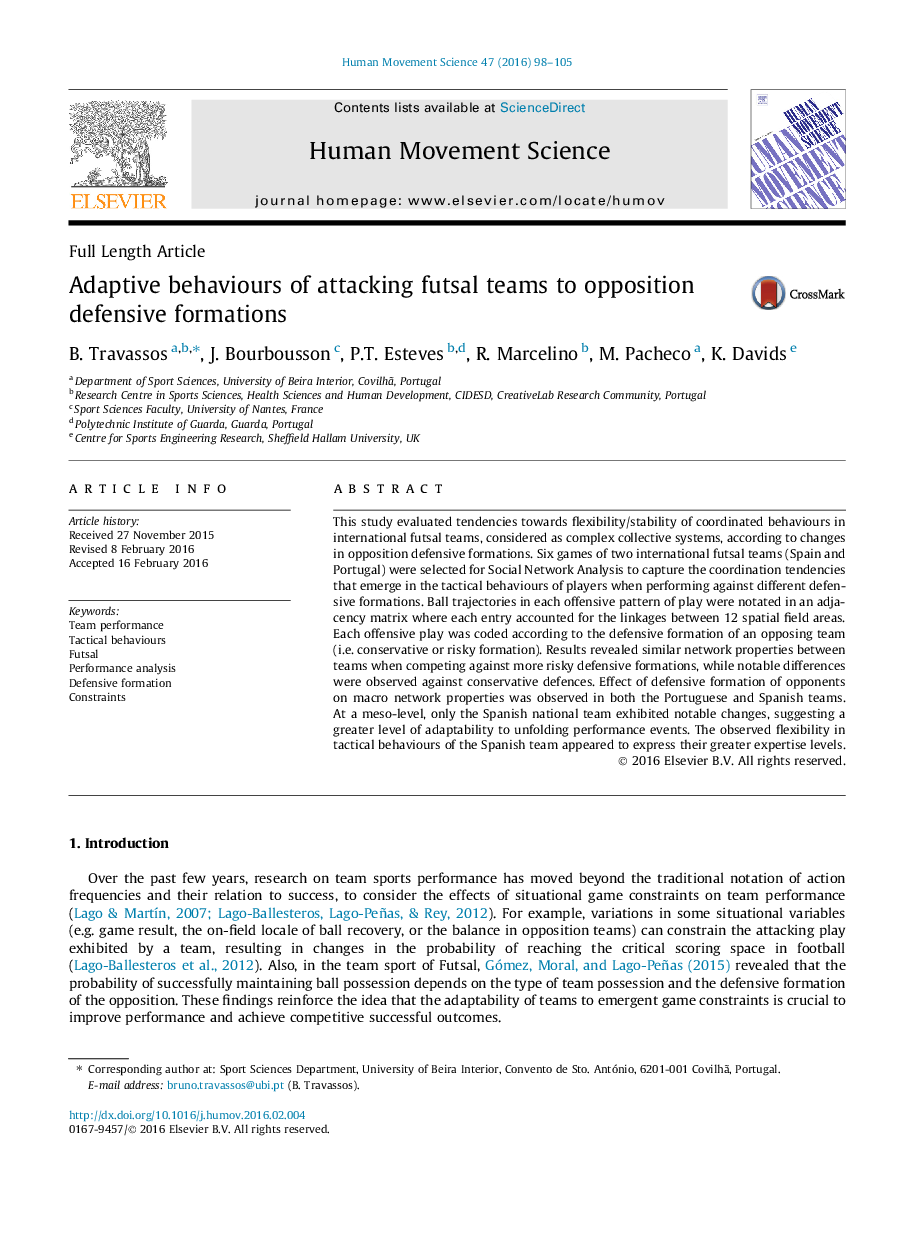| Article ID | Journal | Published Year | Pages | File Type |
|---|---|---|---|---|
| 7291453 | Human Movement Science | 2016 | 8 Pages |
Abstract
This study evaluated tendencies towards flexibility/stability of coordinated behaviours in international futsal teams, considered as complex collective systems, according to changes in opposition defensive formations. Six games of two international futsal teams (Spain and Portugal) were selected for Social Network Analysis to capture the coordination tendencies that emerge in the tactical behaviours of players when performing against different defensive formations. Ball trajectories in each offensive pattern of play were notated in an adjacency matrix where each entry accounted for the linkages between 12 spatial field areas. Each offensive play was coded according to the defensive formation of an opposing team (i.e. conservative or risky formation). Results revealed similar network properties between teams when competing against more risky defensive formations, while notable differences were observed against conservative defences. Effect of defensive formation of opponents on macro network properties was observed in both the Portuguese and Spanish teams. At a meso-level, only the Spanish national team exhibited notable changes, suggesting a greater level of adaptability to unfolding performance events. The observed flexibility in tactical behaviours of the Spanish team appeared to express their greater expertise levels.
Related Topics
Life Sciences
Neuroscience
Cognitive Neuroscience
Authors
B. Travassos, J. Bourbousson, P.T. Esteves, R. Marcelino, M. Pacheco, K. Davids,
